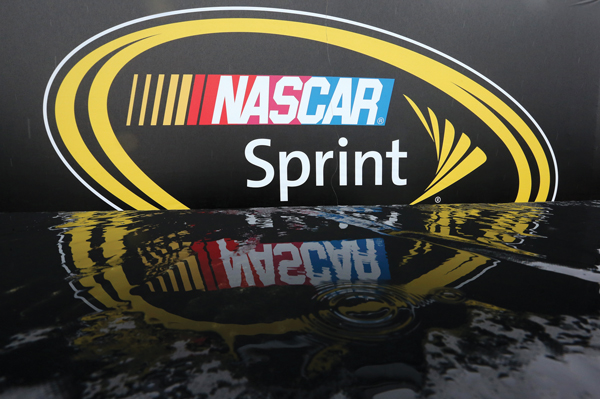NASCAR is getting closer to finding a new title sponsor of its premium Cup Series, but the search is coming down to the wire.
The sanctioning body says it’s talking to roughly a dozen candidates to replace Sprint, which has been in the role since 2008 and exits at the end of this year. But sources say that NASCAR has zeroed in on around three leading candidates and has swapped term sheets with at least one of them.
Companies still in the hunt, according to sources, include Kroger, Samsung, Yum Brands, Coca-Cola and Hisense.
There has been concern in some corners of the industry about how the search is not yet complete, but NASCAR’s top sales executive sounded confident a deal will get done.
“We’re in a really good place; we’re exactly where we thought we’d be time-wise,” said Jim O’Connell, NASCAR’s chief sales officer, who has guided the sanctioning body through multiple title sponsorship deals and extensions since joining it in 2006.
 |
Sources say NASCAR has zeroed in on a few candidates to replace Sprint as Cup Series sponsor.
Photo by: GETTY IMAGES
|
But with companies in the midst of marketing planning and budgeting for 2017, most executives agree that landing a deal in the next 60 days or so is vital.
“If you were looking at the entitlement opportunity a year ago and predicting how it will unfold, you’d have said [this time of year] is go time — this is the critical window for a sponsor to jump on board,” said Jon Flack, president and chief operating officer of Just Marketing International, Americas, which represents Hisense among others.
Sources say NASCAR is likely to end up with at least a four-year deal that is in the $25 million to $35 million range in annual rights fees. Activation levels are hard to predict because NASCAR has signaled a willingness to be flexible in that department.
Sprint’s original 10-year deal with NASCAR reportedly was worth $75 million in annual rights and activation fees combined; sources said Sprint tweaked that in 2011 when it extended through 2016 to end up between $65 million to $75 million annually.
When NASCAR first hit the market for this deal in early 2015, sources said it was eyeing between $90 million and $100 million annually in combined rights and activation fees, but some sources close to the sanctioning body now insist that there has never been a definitive number throughout the process.
Beyond who the successor will be, talk in industry circles has centered in recent months on activation spending. NASCAR, which has had only three Cup Series title sponsors in its history, has told racetracks and media partners to prepare for the possibility that the new deal could look considerably different than Sprint’s, given how much has changed in marketing and media since the Kansas City-based telecommunications company first came aboard. That means the new sponsor could buy fewer track assets as well as reducing television advertising.
Some of that money could shift to digital and social media, or if it’s a more business-to-business-focused company, hospitality and unique access assets.
“The biggest thing [when it comes to activation strategy] is the new entitlement partner has to look at how consumers are consuming the sport,” said Tyson Webber, president of GMR Marketing, which is the sports marketing agency for Xfinity, title sponsor of NASCAR’s secondary series.
When Xfinity came into the sport last year, it struck deals on an individual basis with some but not all tracks, instead of doing joint deals with the sport’s major promoters, who own the vast majority of its venues. Sources said NASCAR has told tracks to prepare for that possibility with the new partner.
During the sales process, prospective partners have asked NASCAR to consider structuring the deal in new ways, ranging from a bifurcated option that would see two brands split the season 50/50, to having a presenting-sponsor option in addition to the title sponsor. Sources said that while these sorts of options remain in play, there appears to be enough interest from companies seeking the traditional role that slicing and dicing the title sponsorship may prove unnecessary.
Exclusivity is expected to remain part of the new sponsor’s deal. What remains to be seen is how many categories get locked up in any deal — for example, Sprint has exclusivity not just in NASCAR’s telecommunications category but also phone accessories — and thus how many become off-limits for teams looking for new business.
“Exclusivity has always been a big part of the Sprint Cup entitlement; it’s very important to Sprint,” O’Connell said. “But depending on who the partner is, we’ll determine with them how important exclusivity is [in terms of how many categories to lock up].”
If the new title sponsor is not in the telecom space, that category and related ones that Sprint has exclusivity in should open back up for the first time since 2004, when Nextel — which was eventually purchased by Sprint — replaced Winston as the series sponsor. That could be a windfall for teams, which typically rely on sponsorship for 75 to 80 percent of their annual revenue, although the new title sponsor could alternatively block out a fresh category, or categories.
O’Connell declined to say how many brands NASCAR pitched during the process but said the sales process for this deal has proved both enlightening and encouraging.
“In general these days — and I’ve been in the sports marketing world for a long time — companies are demanding more assets, demanding to prove ROI, they’re more methodical in analyzing potential deals,” he said. “It’s certainly different in 2016 than it was just even a few years ago, but that’s not necessarily a bad thing.”
Other NASCAR executives involved in the negotiations are COO Brent Dewar; CMO Steve Phelps; Chad Seigler, vice president of business development; and Matt Shulman, managing director of series marketing. O’Connell said NASCAR has worked with agencies throughout the process but didn’t disclose names.




